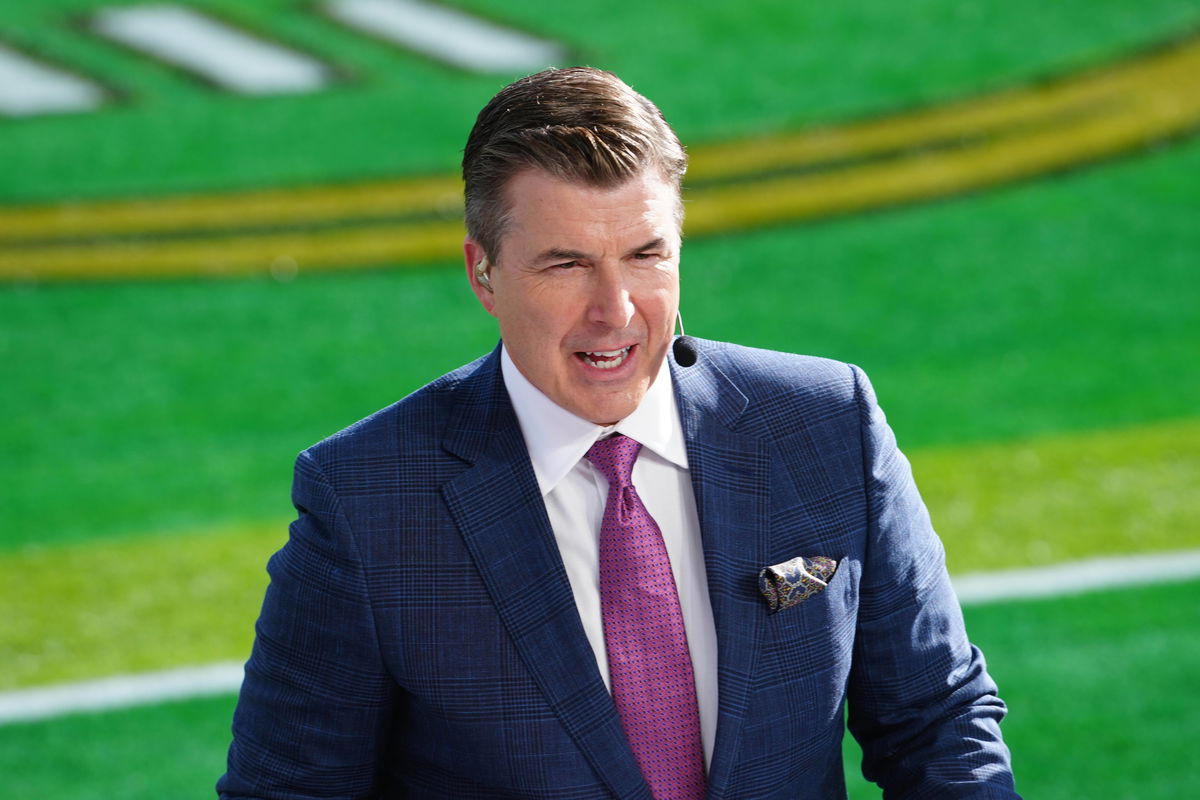
Imago
Rece Davis missed out on the Lou Holtz award ceremony due to College Gameday duties.

Imago
Rece Davis missed out on the Lou Holtz award ceremony due to College Gameday duties.
Florida fell 18-16 at home to South Florida in a game marred by penalties, game mismanagement, and a buzzer-beating field goal, turning a manageable night into a damaging defeat in The Swamp. The result snapped early momentum and amplified concerns about discipline and situational coaching, with the Bulls’ winner arriving after a pair of costly Gators flags on the final drive. In local reaction, the performance was framed as listless and emblematic of recurring issues that have lingered through Billy Napier’s tenure.
Watch What’s Trending Now!
Napier’s seat was already warm entering Year 4, and the USF loss pushed the conversation forward, not least because the current climate includes a reported $19.38 million buyout if Florida moves on after this season. With a gauntlet of ranked opponents still ahead, the margin for error narrowed sharply, and the debate shifted from if to how an AD should evaluate the program arc. Local and national coverage converged on the same theme: repeated game‑management errors and uneven execution keep dragging the Gators into tight, losable spots.
Rece Davis drew a bright line on the process: “I’ll say the same thing I said a year ago. I hope Billy Napier gets out of this. I think Billy Napier is a good coach. I think he can win in the SEC.” He then spelled out the principle: “If an athletic director makes a coaching decision based on a player, you are doing it wrong. Whether DJ Lagway stays at Florida should have zero, less than zero to do with whether you’re keeping the coach.” The point is governance, not sentiment, and it asks leadership to set direction beyond a one- or two-year roster window, especially after a loss that exposed structural, not individual, problems.
ADVERTISEMENT
Pete Thamel voiced the real-world risk calculus: “If you fire Billy Napier, do you risk losing DJ Lagway? He was very clear about his fidelity towards him… they can go find a John Mat or whatever, but… DJ Lagway is pretty special still”. Davis answered the tension by praising the quarterback while holding the line: “You cannot make these decisions based on the whim of a player… It is a massive mistake to decide what you’re doing with a coaching future based on what one single player might do.” He pointed out a way of valuing the player without letting him dictate institutional strategy. That framing fits the landscape where Florida finds himself, where inconsistency is an issue and the kind that can’t be fixed by any single star’s presence alone.
Given the schedule ahead and the financial stakes, the AD’s call is about identity, standards, and whether the program’s operations can meet the SEC grind without leaning on a short-term exception. If the bar is sustained competence under pressure, the choice will be measured against the process Davis outlined rather than any single Saturday or any single arm talent. The message is tough but sound. Appreciate the quarterback, honor his voice, but set direction on a longer arc. If Florida’s choice is about stability, identity, and a plan that holds through rough Saturdays like USF, then the conclusion writes itself in the AD’s office, not on a depth chart.
ADVERTISEMENT
Napier’s play‑calling stance
Billy Napier made his position plain after the loss and chose certainty over second thoughts: asked if he would keep calling plays, he answered, “Yes,” and when pressed on whether he considered handing it off, he followed with, “No.” That resolve can read as leadership, a head coach owning the problem and refusing to flinch in the storm. It can also read as a gamble, because keeping the sheet means the diagnosis and the cure both come from the same place that just misfired.
Napier’s defense of the approach centers on execution more than design. “I think we had 71 plays in the game, something like that… It’s more about the execution and the efficiency, red zone scoring,” he said, adding, “We had a chance to really take control of the game. I think that’s an important lesson.” Taken together, he is arguing that the bones of the plan are solid and the details failed, which puts the onus on cleaner sequencing, sharper communication, and stricter situational discipline. That is a fair framing, but when drives stall in similar ways, the play-caller’s job is to change the picture for the quarterback and the defense, not just trust that the same calls will finally click.
ADVERTISEMENT
He leaned again on fundamentals when asked about the sputter: “Converting on third down, look, we have to eliminate the penalties, playing from behind the sticks. You’ve got to stack plays.” That is true in any offense, but the measure of a play-caller is how often third down gets avoided by winning on first and second with structure that fits personnel. Napier cast the trip to Baton Rouge as an inflection point, too: “When you’re going to Baton Rouge to play the No. 3 team in the country, this is an incredible opportunity and really a special experience to go play on the road in this league against a good team.” If he keeps the card and the unit finds rhythm, the conviction pays off and buys organizational trust; if the same issues persist, the first move should be to hand play-calling to an OC, and if that change is refused or ineffective, the conversation shifts from tactics to tenure.
ADVERTISEMENT
ADVERTISEMENT
ADVERTISEMENT
.png)
.png)
.png)



